"My only regret is that I did not kill more Jews." This is how Alois Brunner, a fanatical Nazi, responsible for the deaths of more than 128,000 people, summed up his life. Were there not among the Nazis who repented? And if so, how sincere could the words of the murderers from the tops of the Third Reich be?
Alfred Rosenberg, a leading Nazi party theorist, became a fanatical anti-Semite and anti-communist after the end of World War I. This graduate of architecture and engineer, who designed the crematorium as part of his thesis, was a silent inspiration for Adolf Hitler. His relationship with the Führer was quite complicated from the beginning.
The ideologist of the Third Reich had no illusions about it. "He valued me very much, but he didn't like me," he wrote in his journal.
Rosenberg aroused similar feelings among his party colleagues. However, he did not do much of this reluctance. He pushed forward, believing that the end of the "Żydokomuna" was the historic mission of the Nazis. This is him in the book "The Myth of the Twentieth Century", sometimes maliciously referred to as the second unread bestseller of the Third Reich after "Mein Kampf" , popularized the term "untermensch", meaning "subhuman". He called the Slavic races that.
The death of "Żydokomunie"
Despite this contemptuous vocabulary, he was concerned about the fate of the "future slaves". He even protested with the leader of the Third Reich himself against the ill-treatment of the conquered population. Of course, it was only for practical reasons, and not for any humanitarian aspects.
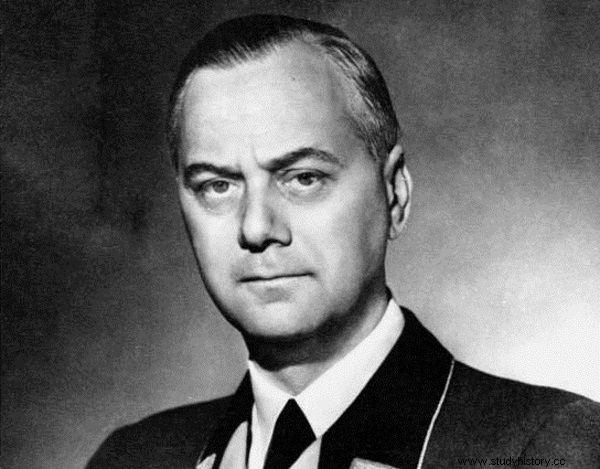
Alfred Rosenberg believed that the liquidation of the "Judeo-Communism" was the historic mission of the Nazis. There is no indication that he will change his mind at the end of his life.
The Nazi theorist showed no such sentiments towards the Jews. Without hesitating, he sanctioned the murderous actions of the Einsatzgruppen, special units designed to eliminate all "hostile elements" operating in the rear of the German army. They were especially famous for the extermination of the Jewish population from the USSR.
Rosenberg was also fully aware of the criminal policy of the Third Reich. His plenipotentiaries attended the famous Wannsee conference in early 1942, at which decisions were made to initiate the Holocaust, so commonly referred to as the "Final Solution to the Jewish Question."
Despite all the involvement of the anti-Semitic ideologist in the Nazi extermination machine, everything indicates that he himself was not able to fully see any serious flaws in his achievements. As in the book "The Devil's Diary" write David Kinney and Robert K. Wittman, in the prison cell where he ended up after the defeat of Germany, he resembled at most "an after-hours funeral director" . During the hours of interrogations before the Nuremberg trial, he tried to hide his ignorance. Among other things, he said that he had never been to a concentration camp. He maintained that he had no idea what was going on within them. Apparently… no one informed him about it.
During the trial, the would-be architect emphasized that he had avoided getting to know the reality of the camp… for aesthetic reasons. Yes, Himmler once invited him to Dachau, so that he could see with his own eyes the perfect conditions the prisoners lived there. “We have a swimming pool, we have sanitary facilities,” he praised.
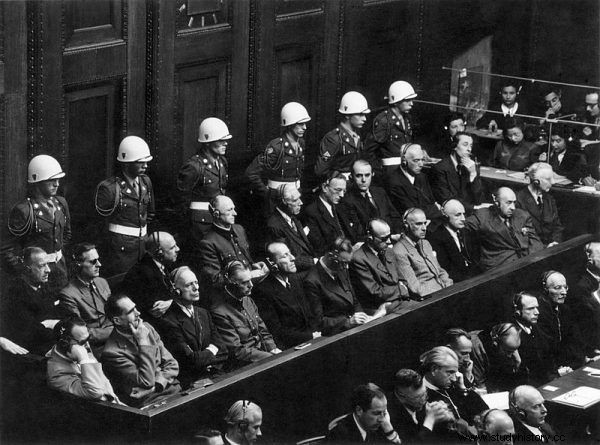
Is it possible that the highest-ranking officials of the Third Reich did not know that they were lending a hand to murdering millions of people?
However, Rosenberg refused to go on the tour, he said, “for aesthetic reasons; I just didn't want to see people deprived of their liberty. " These assurances did not convince anyone. The dignitary simply was clearly struggling to fall from the top and tried to shirk the pressure of the prosecution.
The creator of the Nazi ideology was sentenced to death. He was the only one of those who received the highest sentence to say nothing prior to his hovering.
"I would have done it without hesitation"
It was not only the author of The Myth of the Twentieth Century who claimed in Nuremberg that he did not notice the true nature of the Nazi practice. Joachim von Ribbentrop, the Nazi minister of foreign affairs, participated in the planning of almost all of Germany's aggressive policy. This did not prevent him from blaming at least some of his blame on Hitler, who allegedly "cheated" him during the trial. The Nazi politician admitted, however, that was in the hands of the Führer a passive tool. "If Hitler walked into my cell now and said do this or that, I would have done it without hesitation," he said before he was hanged.
Obedience was more important than human life also for Rudolf Höss, the commandant of the concentration camp in Auschwitz. Admittedly, when asked if he ever felt sorry for the victims, he replied in the affirmative, but also stressed that for him the only criterion was Himmler's personal order.
How did he deal with possible remorse? He looked for the justification for the meaning of his "work" in Rosenberg's book. "I took it all for facts, just as a Catholic accepts church dogmas" He told the American psychologist visiting him in his cell.
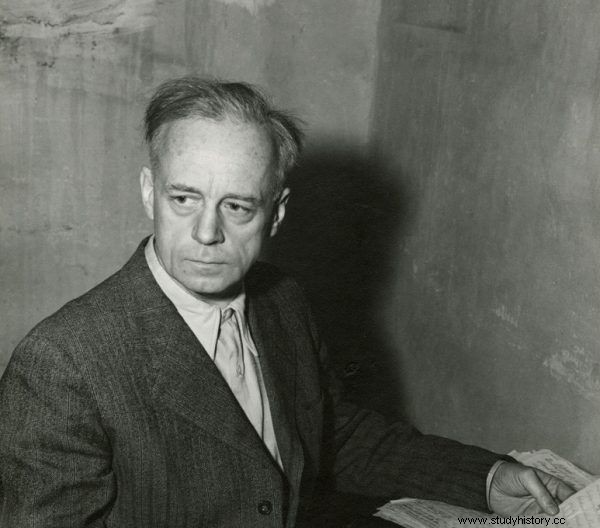
Joachim von Ribbentrop fully claimed that he would have complied with Hitler's every request without hesitation.
Höss was an SS man, a ruthless and altogether mindless killing machine, but a similar eclipse of mind also affected the "honorable" soldiers and Wehrmacht commanders. A perfect example of this was Field Marshal Wilhelm Keitel. Immediately before the German attack on the Soviet Union, he signed an order in which he ordered German soldiers to be absolutely ruthless in their treatment of the conquered civilians.
Interestingly, the military was himself an opponent of this invasion. He considered it a serious strategic mistake. However, this did not prevent him from faithfully carrying out every order of Hitler. For this reason, he was even called a "butler" by his colleagues.
The apparent ignorance and the lie of the winners
The fullness of his crimes was only exposed at the Nuremberg trial. It turned out that his orders led to the death of thousands of people, including many prisoners of war, who were liquidated without trial. His idea was also to encourage the lynching of allied pilots shot over German territory.
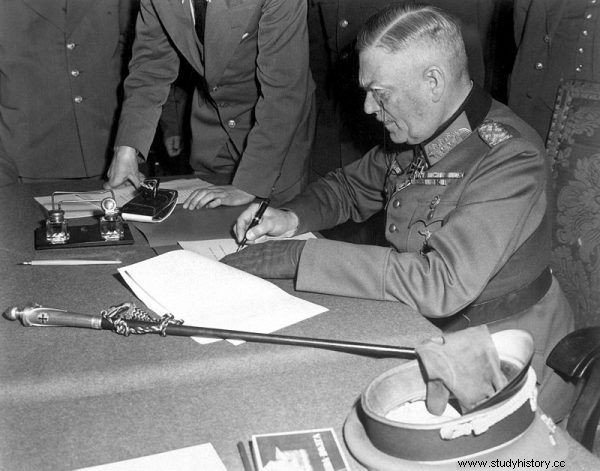
Field Marshal Wilhelm Keitel was hiding behind military discipline. He claimed that he was under an obligation to keep an oath of allegiance to Hitler.
At the trial, Keitel defended himself by quoting an oath of loyalty to Hitler which he had taken and which he claimed he had to be faithful to the end. However, he admitted that he had made mistakes and that he had not stopped "what should be stopped." The judges did not recognize this translation and treated the field marshal as an ordinary criminal. He was denied a soldier's death by shooting. So like most of the inmates, the butler ended up on the gallows.
Another Nazi leader, Hermann Göring, seemed genuinely surprised and depressed upon hearing the shocking evidence of German crimes. He even claimed that the films shown, shot after the liberation of concentration camps, must be clever editing. Already in the courtroom, he tried to impose this point of view on his colleagues as well.
Unfortunately for the Nazi activist who was Hitler's right-hand man in his time, it turned out that there were documents that undeniably refuted this line of defense. It was proved that he knew about the crimes committed by the Nazis. In many cases he was the initiator of them himself.
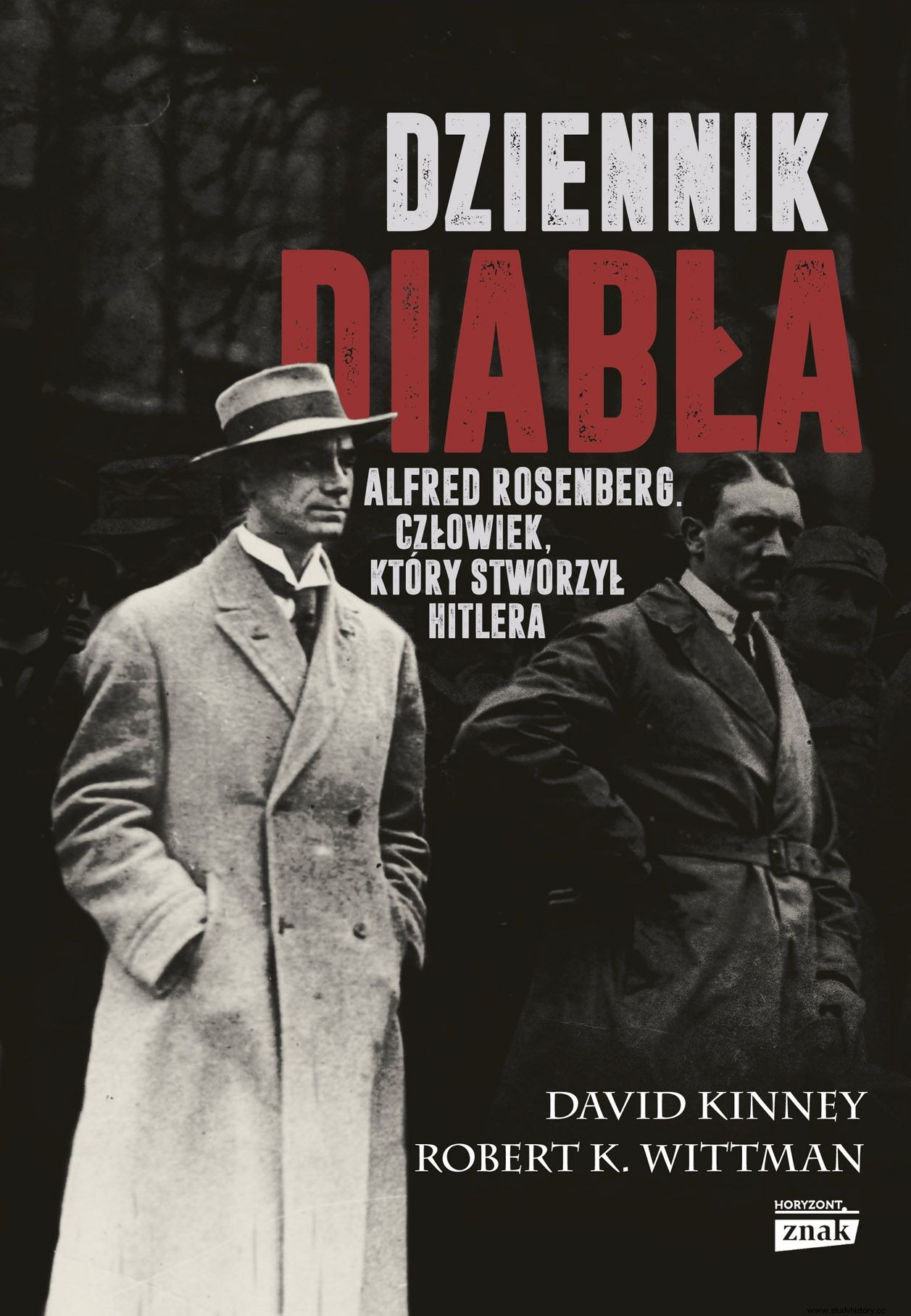
Did Göring feel guilty? His private conversations with psychologists and lawyers on death row reveal a fascinating and complex personality. They show that in his darker moments he felt the burden of guilt already during World War II. He was also fully aware that it might be time to pay.
An interesting fact is that during the war, Hitler's henchman actively supported his brother, a staunch opponent of Nazi policy. For example, Albert Göring helped in the escape of prisoners from concentration camps. However, the judges did not take this into account when issuing their verdict. However, the Reich Marshal did not wait for the execution. He poisoned himself with a cyanide capsule, which he hid in his buttocks.
"Christ, forgive me"
The only "converted" Nazi in Nuremberg was Hans Frank, governor general of the occupied Polish lands. He pleaded guilty during the trial. The amount of evidence against him was shocking, as was the scale and extreme cruelty of the crimes committed in Poland.
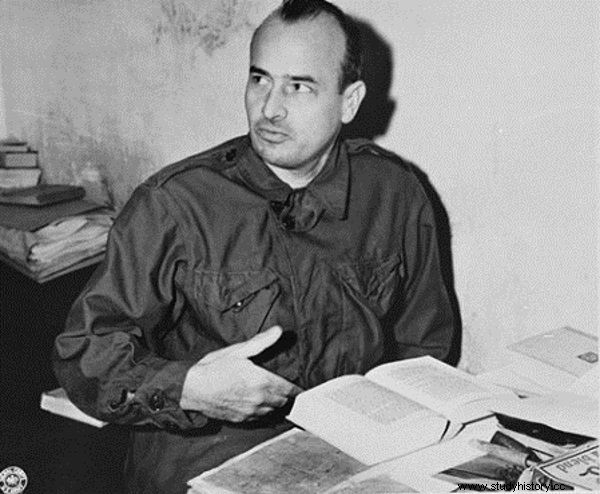
Hans Frank, at the end of his life, asked God for forgiveness. Earlier, however, he calmly consented to starvation of over a million Jews ...
The fact that he knew perfectly well what was going on around him is evidenced, for example, by his words from October 1941:
We condemn 1.2 million Jews to death by starvation, no need to say much . This is understandable, and if the Jews do not starve, the anti-Jewish ordinances will have to be sped up, and hopefully they will.
Frank also persecuted Poles. In the territories ruled by him, their mass extermination continued. About a thousand people were executed for just helping Jews. We will never know the exact number of his victims of Polish origin.
The Nazi official, perhaps overwhelmed by the evidence, showed remorse. As he himself said, he "found God on death row" and was ready to pay for his deeds. "Christ, forgive me!" he said just before the execution, which was the only prisoner to walk to with a smile on his face.
